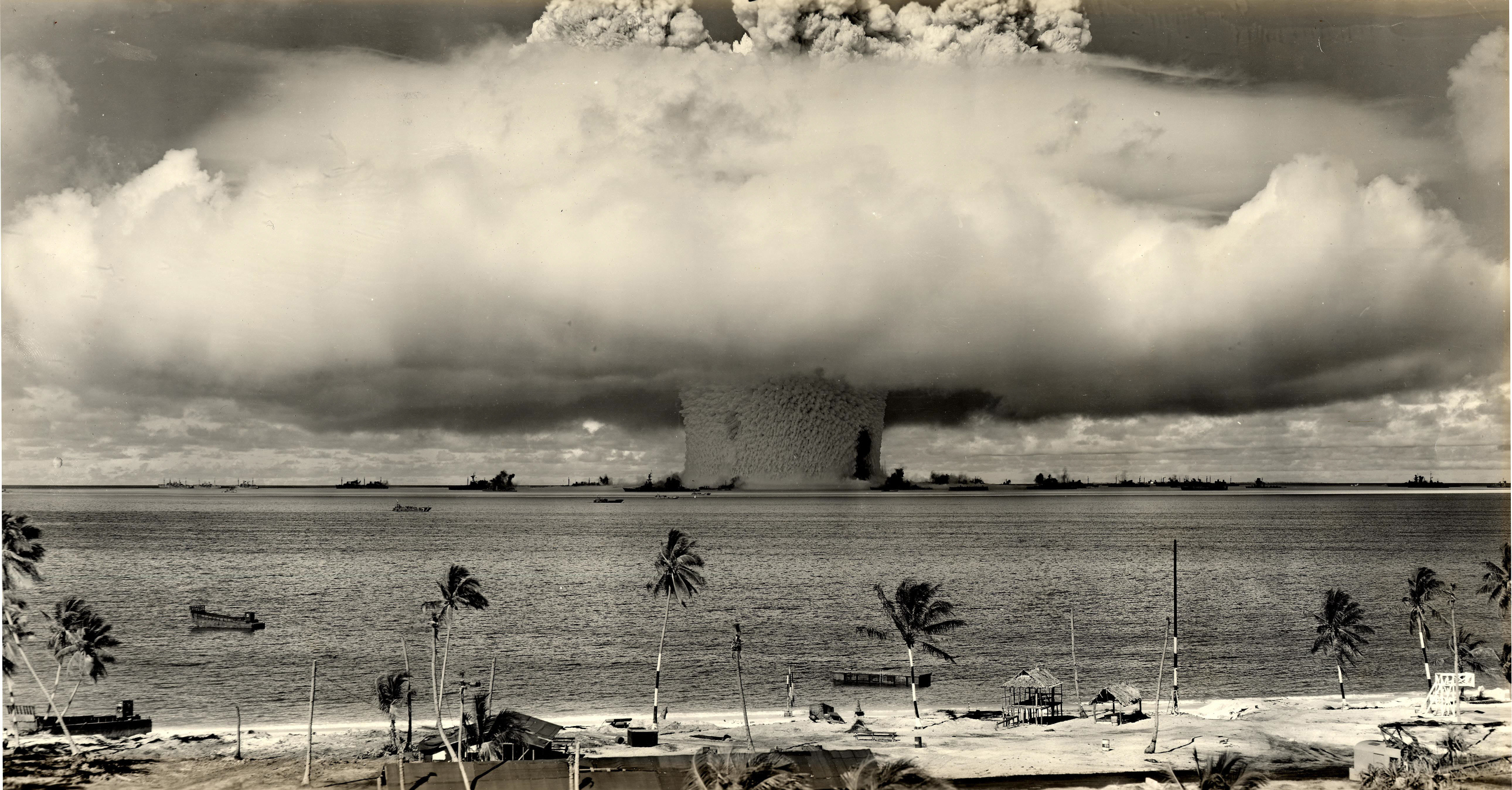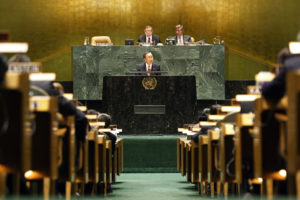How Feasible is Nuclear Disarmament? Examining 2017’s Nobel Peace Prize Winner
 Nuclear Testing at Bikini Atoll, 1946.
Source: https://www.flickr.com/photos/x-ray_delta_one/3949898611/
Nuclear Testing at Bikini Atoll, 1946.
Source: https://www.flickr.com/photos/x-ray_delta_one/3949898611/
On the 6th of October, the International Campaign to Abolish Nuclear Weapons (ICAN) was awarded the Nobel Peace Prize for its role in devising the UN Treaty on the Prohibition of Nuclear Weapons. ICAN’s efforts to achieve global nuclear disarmament address one of the most high-profile issues affecting the international community, the stakes of which have continuously escalated in the past months. Since its Nobel accolade, ICAN has become the focal point of nuclear discourse and controversy.
ICAN, an association of non-governmental organizations from states all over the world, was founded a decade ago in Australia. The organization’s main objective is to prevent nuclear-related human suffering, which it believes nuclear conflict would inevitably breed. In line with this target, it currently focuses on ensuring that the UN Treaty on the Prohibition of Nuclear Weapons is effectively implemented in participating states.

Source: United Nations
There currently exist approximately 15,000 nuclear weapons in the world. In the 1970s, China, the United States, France, the United Kingdom and Russia, the five “nuclear-weapon states”, all adhered to the Treaty on the Non-Proliferation of Nuclear Weapons (NPT), along with 186 other countries, in a bid to better regulate the international nuclear system. The NPT’s aims are threefold. Aside from limiting the spread of nuclear arms, its intent is to maintain the “peaceful use” of nuclear energy while promoting disarmament. ICAN, through the UN Treaty on the Prohibition of Nuclear Weapons, seeks to bolster actions taken to enforce this last objective, which it believes has been completely ignored by NPT-signatory states in the past. The new treaty then serves as a complement to the NPT.
Reactions to the Nobel Peace Prize attribution have ranged from enthusiastic to cynical. Critics point to how Nobel Peace Prize winners seldom benefit from being awarded the prize, which serves more of a decorative purpose than it has meaningful ramifications. In 2012, for example, the Prize was won by the European Union. The EU has since then been rattled by Brexit and mounting nationalist politics, a far-cry from the supposed peace that the Nobel Committee felt compelled to reward at the time. As such, the Nobel Peace Price may have set ICAN up for failure by setting the bar too high.
Other experts, like the Director of France’s Institute of Strategic Research for the Military, further stated that disarmament, paradoxically, will thwart the already fragile global peace order instead of reinforcing it. The Director explained that ICAN’s strategy undercuts a lasting deterrence strategy between antagonistic states, a view shared by the United States. He likens the UN Treaty on the Prohibition of Nuclear Weapons to an “empty promise” with no real means to back itself up. He additionally highlighted the fact that none of the five nuclear-weapon states that possess nuclear arms were present at the negotiation table, revealing their unwillingness to implement disarmament measures in a “volatile international security context”. Nuclear-armed states will never sign such a treaty as long as the North Korean “menace” holds, he asserted, meaning that the treaty is in fact void in terms of value.
ICAN’s reward thus appears premature in the current global framework. One of the most important limitations of the treaty is found in its limited efficiency as a legal instrument. Treaties acknowledge that states are entirely sovereign in terms of decision-making, hence they cannot force non-signatories to comply with their content. Its power as an agent of change is considerably compromised as a consequence, given that the five nuclear-weapon states have yet to commit to the treaty.

Source: flickr.com
The Nobel Committee and ICAN nonetheless stated they are fully aware that the treaty will not “eliminate a single nuclear weapon”. Instead, what they hope it will achieve is provide individuals with inspiration to act, revive discourse surrounding the topic, and grow the ranks of nuclear arms opponents. The UN Treaty on the Prohibition of Nuclear Arms is viewed by the Committee as a point of departure, not an end, for future endeavors to strengthen international security.
Other experts similarly contend that the treaty’s importance lies not in its attempt to provide a blueprint for disarmament, rather in the manner it exposes nuclear-weapon states’ irresponsibility with regards to the international community. Ramesh Thakur, the director of the Centre for Nuclear Non-Proliferation Disarmament at the Australian National University, holds that the treaty will spark the stigmatization of nuclear-weapon states by global society. This name-and-shame process, he argues, is a necessary precursor to reaching disarmament. Whether nuclear-weapon states will be responsive to international criticism, like Thakur asserts, remains to be seen.
What is certain is that as humanity enters an era where nuclear war prospects are increasingly linked to heated Twitter feuds, nuclear disarmament, efficient or not, is an option for greater global peace worth exploring.
Edited by Zoë Wilkins
